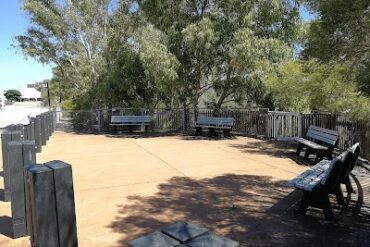Fun and Engaging Riddles for Kindergarteners: Unlocking Young Minds
Hey there, wonderful parents and guardians! Are you ready to dive into the whimsical world of riddles with your kindergartener? Riddles are a fantastic way to stimulate the minds of young children, promote critical thinking, and provide a delightful shared activity. In this guide, we’ll explore the magic of riddles and how they can benefit your little ones while providing a treasure trove of giggles and grins!
Why Riddles Are Remarkable for Your Kindergartener
Before we start tickling those brain cells, let’s understand why riddles are more than just a fun pastime:
- Boosts Vocabulary: Engaging with riddles can introduce new words into your child’s lexicon, helping to build their language skills.
- Enhances Problem-solving Skills: Riddles require thinking outside the box, which encourages creative problem-solving.
- Improves Comprehension: To solve a riddle, children need to listen carefully and understand the context—a great way to improve comprehension abilities.
- Encourages a Love for Learning: The playful nature of riddles makes learning fun, which can instill a lifelong love for intellectual discovery.
- Strengthens Bonding: Sharing riddles is a cozy, interactive activity that can strengthen bonds as you laugh and learn together.
How to Introduce Riddles to Your Kindergartener
So, how do you get started with riddles for your little one? Follow these simple steps to ensure a smooth and enjoyable experience:
- Keep It Simple: Choose riddles that are age-appropriate and not too complex for young minds. Simplicity is key!
- Read It Aloud: Hearing the riddle will help your child process the information more effectively. Use expressive tones to make it engaging!
- Encourage Guesses: It’s okay to be wrong! Encourage all attempts and celebrate the effort rather than just the correct answer.
- Provide Hints: If your child is stuck, offer subtle hints to guide them towards the answer, making sure not to give it away too quickly.
- Discuss the Answer: Once the riddle is solved, talk about it! Discussing the riddle’s answer helps reinforce understanding and retention.
Fun Riddles to Start With
Ready to begin? Here are a few simple riddles to share with your kindergartener. Watch their faces light up as they ponder and solve:
- What has hands but doesn’t clap? — A clock!
- What is full of holes but still holds water? — A sponge!
- What can you catch but not throw? — A cold!
These riddles are just the tip of the iceberg when it comes to the fun you and your kindergartener can have. Embrace each moment as a learning opportunity and cherish the laughter that comes with the occasional silly guess. Always remember, the goal isn’t just to find the right answer; it’s to create an environment where learning is enjoyable and loved.
As parents, you know your child best! Feel free to adjust the difficulty of the riddles and the way you present them based on your little one’s interests and developmental stage. Celebrate their victories, guide them through challenges, and above all, enjoy the special times that riddles can create.
Now that we’ve got the ball rolling, stay tuned for more riddles to challenge your kiddo’s intellect and tickle their funny bone! But first, let’s shake things up with some tips on how to dynamically introduce riddles into your family’s routine…

5 Essential Tips for Parents Preparing Riddles for Kindergarteners
Ready to take the plunge into the world of riddles for your mini thinkers? Here are five essential things to keep in mind as you prepare to challenge their young minds with some amusing wordplay:
- Select Age-Appropriate Riddles: Ensure the riddles are suitable for the kindergartener age group. They should be challenging enough to make them think but not so difficult that they feel discouraged.
- Incorporate Visual Aids: Young children often learn better with visual cues. Consider using pictures, props, or drawings when presenting a riddle to help them visualize the problem.
- Make It Interactive: Turn riddle time into an interactive session. Use gestures and changes in your voice to make the riddle-solving adventure lively and engaging.
- Be Patient and Supportive: Sometimes the answers will come flooding out, and other times, you’ll hear crickets. Be patient as your child thinks and offer support and encouragement along the way.
- Mix Riddles with Physical Activity: Combine riddles with a physical activity like a treasure hunt, where each clue is a riddle. This is a great way to burn energy while exercising both their bodies and minds.
Integrating Educational Themes
Riddles don’t just have to be about random topics—they can be a fantastic tool to reinforce what your child is learning in kindergarten. Here are some themes you could include:
- Numbers & Counting: Riddles that involve basic arithmetic or counting can improve numerical skills.
- Nature & Science: Opt for riddles that involve animals, plants, or simple scientific concepts to foster a curiosity about the world.
- Daily Routines: Riddles about everyday tasks can help children better understand and engage with their daily routines.
Creative Riddle Crafting with Your Kindergartener
Why not turn the tables and encourage your child to create their own riddles? This activity enhances creativity, allows them to think critically about language, and gives them a sense of pride when they stump you! Plus, it’s a blast seeing the world through their eyes, where a spoon could be a mini paddle or a moon could be a banana in the sky!
With these tips and your warmth and guidance, riddle time can become a cherished part of the day that both you and your little one look forward to. Remember, the goal is to foster a love of learning, boost confidence, and, most importantly, share lots and lots of laughter and fun!
Expand Your Riddle Repertoire
As you embark on this riddle journey, consider building up a bank of riddles. You can find books dedicated to children’s riddles, browse online resources or even join parent forums where members share their favorite brain teasers. Having a wide array of riddles at your fingertips means you’ll always be ready to challenge and delight your eager learner.
Now that we’ve laid the groundwork, it’s time to sprinkle some more riddling fun into your daily interactions. Proceed with these nuggets of wit and watch as your kindergartener’s face beams with joy at each new puzzle unraveled. Let’s not only tickle their funny bones but also light up those bright young minds, one riddle at a time!
For more great fun click here. For more information see here
Disclaimer
The articles available via our website provide general information only and we strongly urge readers to exercise caution and conduct their own thorough research and fact-checking. The information presented should not be taken as absolute truth, and, to the maximum extent permitted by law, we will not be held liable for any inaccuracies or errors in the content. It is essential for individuals to independently verify and validate the information before making any decisions or taking any actions based on the articles.




